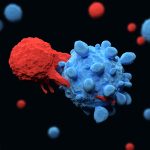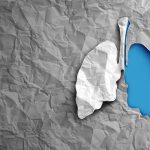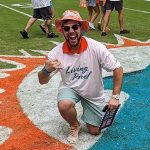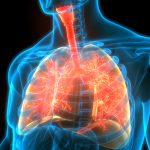-
December 1: The Week in Cancer News
FDA announces investigation into CAR T-cell therapy, and precision therapies are not available for most cancer diagnoses.
by Kevin McLaughlin
-
Is Chemo-free Treatment Coming for HER2-positive Breast Cancer?
Evidence grows that some people with HER2-positive breast cancer may do well on HER2-targeted therapy alone.
by Myles Starr
-
Germline Genetic Testing Lags Behind Guidelines
Low rates of germline genetic testing in cancer patients means information that could affect treatment isn’t available.
by Jon Kelvey
-
November 17: The Week in Cancer News
Study finds association between vitamin D levels and risk for peripheral neuropathy, and new report highlights rising lung cancer survival.
by Thomas Celona
-
Progress in Lung Cancer
November is Lung Cancer Awareness Month. Here are stories describing lung cancer treatment advances and the experiences of people who have been through a diagnosis.
-
November 10: The Week in Cancer News
Sun exposure is an occupational hazard around the globe, and a dormant virus can cause immunotherapy complications.
by Eric Fitzsimmons
-
Against All Odds
At age 26, Manny Garcia was diagnosed with and fought pancreatic cancer.
by Karon Warren
-
November 3: The Week in Cancer News
Recommendation suggests ongoing lung cancer screening for those with heavy smoking history even after quitting, and children with Down syndrome and leukemia face worse outcomes.
by Marci A. Landsmann
-
Finding the ‘Silent Killer’
Strange symptoms led cancer care nurse Eve Spiegel to an ovarian cancer diagnosis.
by Eve Spiegel
-
October 27: The Week in Cancer News
Living alone may increase the risk of cancer death, and cervical cancer study results called ‘remarkable.’
by Kevin McLaughlin
Cancer Talk
Many People Don’t Get Colonoscopy After Receiving Abnormal Blood Tests
About half of people who receive abnormal results from colorectal cancer screening tests don’t follow up with a colonoscopy.
by Laura Gesualdi Gilmore
Can Steroids Impair Immunotherapy for Cancer?A new study suggests steroids could blunt the effects of some immunotherapies, but researchers say they remain necessary for some patients.
by Kyle Bagenstose
Treatment Combination Improves Survival in Platinum-resistant Ovarian CancerPreliminary results found that combining relacorilant with nab-paclitaxel improved outcomes for women with advanced ovarian cancer.
by Sandra Gordon
CAR T-cell Therapy Shows Response in Rare Brain CancerPotential new approach to treating diffuse intrinsic pontine glioma uses engineered immune cells infused directly to the brain.
by Taneia Surles














